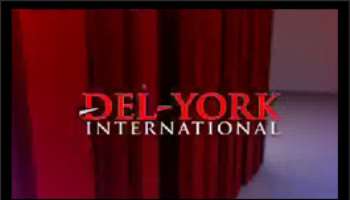MUSIC FOR MOVIES: Fixing the Disconnect Between Sound Design and Nigerian Movies.
Aside a great plot, enlivened pictures and engaging pictures, in movies spectacular sound design is the jolt that accelerates the heartbeat and keeps the audience on the edge of their seats. Whether complimenting stunt sequences or providing fill-ins from one scene to another, sound design is a major in every film production. Immense effort is invested to design and write sounds and songs respectively before a successful movie is produced and seen.
In Hollywood where global film standards are set and achieved, music is a massive leverage used to detect the flow of scenes, incite emotions in viewers and build rapport with fans. Christopher Boyes, one of the most accomplished and successful sound designer for motion pictures in Hollywood is credited with accolades for executing various compositions for numerous Box Office hits {Titanic, Pearl Harbour, The Lord of the Ring, Jurassic Park, Ironman, National Treasure, 13th Warrior, Pirates of the Caribbean, KingKong, Avatar} in the cinema world. With classic orchestral dexterity, this acclaimed sound guru brings the beauty of sound to filmmaking and accords movie lovers the experience that blockbusters are made of.
Likewise in India 's Bollywood- the second largest film industry in the world by quality appraisal- music has over the years been the core element that defines film production. Extensively exhibited as a trademark, the Hindi movie industry graces the silver screen with the most creative and endearing collection of music, telling dramatic stories with seamless efforts (Shah Rukh Khan's 'Mad'). With this music-movie statement they have successfully won millions of fans around the world and establish a strong presence in the global entertainment Hall of Fame.
The Asian film industry proves even more. Contemporary Chinese and Japanese movies are famous in employing cutting-edge synergy of different brands of music to accentuate motions in pictures. Known for supersonic actions, heart-stopping stunt choreographies, and state-of-the-art CGI's, soundtracks and effects create series of expectations that keep the attention of viewers completely stapled on the subject. Now and again, heavy metal rock or high-octane pop rhythms are combined with Asian-cultured acoustics to deliver optimal effect on high-speed actions sequences (John Woo directed/ Chow Yung Fat starred 'Hard Boil' and Wachoski Brothers directed/ Keanu Reeves starred 'Matrix'); and also symphonic ballad are doctored to build contagious emotion in romantic scenes (House of Flying Daggers). For great filmmakers, music and movies are inseparable, and sound designers/music composers are indispensable in every viable production.
Today, as Nigeria 's Nollywood takes centre-stage, the need to assess its production processes as it relates to sound design arises. For over a decade since the home-video boom took the spotlight, Nigerians have had to settle for a rather below-the-bar execution of movie production. Detached from the other aspects of motion picture creation, Nollywood sound design department suffer a great deal of mediocrity. Keenly sitting through the literally mixed-baggage task of viewing a typical home-video, one would expect to be wrapped in thought-provoking moments of vision and sound. But for the latter (sound), it is quite a bitter expression. The amateurish method of sound design puts on our TV screens ridiculous sound effect (if there is any) and deficient soundtracks. From start to finish, distorted sounds trail shots and scenes and make mincemeat of creativity in sound design, thus a supposedly fantastic movie experience become irksome. By global film-sound design standards, Nollywood movies appallingly take the back seat.
The issue has never been a question of capability, but professionalism. As can be noted, specifically within the advertising industry, indigenous sound experts are proving their mettle in producing brilliant sound statements. From songwriting, arrangements and productions, Nigerians posses the creative and technical resources to execute variety of sounds and musical concepts for motion pictures. The music industry further attests to this standpoint with spectacular songs that sweeps the airwaves. With these evidences of resources availability, without a doubt Nollywood sound design setback points to one factor: to say the least, professionalism is yet again victimized by self-indulgence, and Nollywood film producers remain the probable felons.
Acknowledging their gallantry so far (considering the numerous infrastructural challenges that wrecks the industry), but without bias, Nollywood producers have over the years neglected the importance of good sound production for movies. Proffering financial insufficiency may seem a likely excuse, but it is a known fact that most home-videos record revenue in excess compare to the expenses. If professionalism and quality output is considered a priority, no proposition is farfetched for concern parties to reach in the lucrative business of filmmaking.
Putting stereotyped business initiative at bay, for the sake of Nigeria's global image (because home-videos circulating abroad present a presumed picture of Nigeria, culturally and professionally); it's time for movie makers to take positive strides to fix the growing disconnect in the entertainment industry, in reference to sound design for films. Credible music producers should be consulted to create innovative sounds (also legally using original soundtracks from mainstream recording music-artistes to ham up fans) that will leverage the efforts put into producing movies. Consciously setting in motion the departure from a whip-and-patch approach to filmmaking, and opening up new horizons and improved pathways for potential filmmakers to follow. Also, music producers and sound designers should in whatever affirmative way create a level playing field for filmmakers to use their dynamic services. Proactively, the administrative authorities between these two parties (music and film) in Nigeria 's entertainment industry should open up policies that will encourage a feasible and progressive working relationship.
For all that have been said (and not said), a splendid movie experience is not without memorable sounds: that is, sound effects and music.
Latest News
-
 "If You're For Me, I Am For You" - Cubana Chief P
"If You're For Me, I Am For You" - Cubana Chief P -
 "3 Days To Go" - Femi Adebayo Urges Fans To Get S
"3 Days To Go" - Femi Adebayo Urges Fans To Get S -
 "Stop Asking Me Questions About Speed Darlington"
"Stop Asking Me Questions About Speed Darlington" -
 "Benue Is The Most Underdeveloped State I've Ever
"Benue Is The Most Underdeveloped State I've Ever -
 Stan Alieke Urges Young Professionals To Take Lin
Stan Alieke Urges Young Professionals To Take Lin -
 Chizzy Alichi Teases Fans With Baby Reveal, Promot
Chizzy Alichi Teases Fans With Baby Reveal, Promot -
 "I'm Not Wearing Makeup From July 4th Till Decemb
"I'm Not Wearing Makeup From July 4th Till Decemb -
 "Stop The Challenge Of Mocking Kids With Down Syn
"Stop The Challenge Of Mocking Kids With Down Syn -
 Regina Daniels Celebrates Sons As They Mark Birthd
Regina Daniels Celebrates Sons As They Mark Birthd -
 Speed Darlington Threatens To Sue NAPTIP For Defam
Speed Darlington Threatens To Sue NAPTIP For Defam














